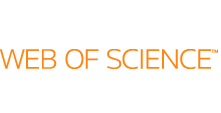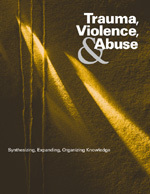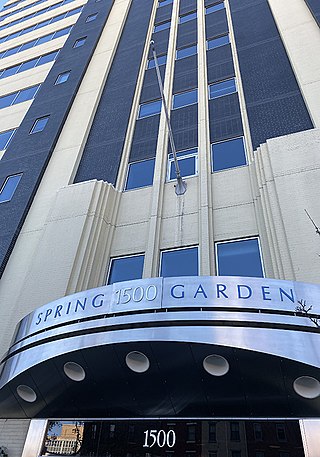
A citation index is a kind of bibliographic index, an index of citations between publications, allowing the user to easily establish which later documents cite which earlier documents. A form of citation index is first found in 12th-century Hebrew religious literature. Legal citation indexes are found in the 18th century and were made popular by citators such as Shepard's Citations (1873). In 1961, Eugene Garfield's Institute for Scientific Information (ISI) introduced the first citation index for papers published in academic journals, first the Science Citation Index (SCI), and later the Social Sciences Citation Index (SSCI) and the Arts and Humanities Citation Index (AHCI). American Chemical Society converted its printed Chemical Abstract Service into internet-accessible SciFinder in 2008. The first automated citation indexing was done by CiteSeer in 1997 and was patented. Other sources for such data include Google Scholar, Microsoft Academic, Elsevier's Scopus, and the National Institutes of Health's iCite.
The Institute for Scientific Information (ISI) was an academic publishing service, founded by Eugene Garfield in Philadelphia in 1956. ISI offered scientometric and bibliographic database services. Its specialty was citation indexing and analysis, a field pioneered by Garfield.
The impact factor (IF) or journal impact factor (JIF) of an academic journal is a scientometric index calculated by Clarivate that reflects the yearly mean number of citations of articles published in the last two years in a given journal, as indexed by Clarivate's Web of Science.

Google Scholar is a freely accessible web search engine that indexes the full text or metadata of scholarly literature across an array of publishing formats and disciplines. Released in beta in November 2004, the Google Scholar index includes peer-reviewed online academic journals and books, conference papers, theses and dissertations, preprints, abstracts, technical reports, and other scholarly literature, including court opinions and patents.
The h-index is an author-level metric that measures both the productivity and citation impact of the publications, initially used for an individual scientist or scholar. The h-index correlates with success indicators such as winning the Nobel Prize, being accepted for research fellowships and holding positions at top universities. The index is based on the set of the scientist's most cited papers and the number of citations that they have received in other publications. The index has more recently been applied to the productivity and impact of a scholarly journal as well as a group of scientists, such as a department or university or country. The index was suggested in 2005 by Jorge E. Hirsch, a physicist at UC San Diego, as a tool for determining theoretical physicists' relative quality and is sometimes called the Hirsch index or Hirsch number.

Cancer Research is a biweekly peer-reviewed medical journal published by the American Association for Cancer Research. It covers research on all aspects of cancer and cancer-related biomedical sciences and was established in 1941. The editor-in-chief is Chi Van Dang.
The Science Citation Index Expanded is a citation index originally produced by the Institute for Scientific Information (ISI) and created by Eugene Garfield.

The Social Sciences Citation Index (SSCI) is a commercial citation index product of Clarivate Analytics. It was originally developed by the Institute for Scientific Information from the Science Citation Index. The Social Sciences Citation Index is a multidisciplinary index which indexes over 3,400 journals across 58 social science disciplines – 1985 to present, and it has 122 million cited references – 1900 to present. It also includes a range of 3,500 selected items from some of the world's finest scientific and technical journals. It has a range of useful search functions such as 'cited reference searching', searching by author, subject, or title. Whilst the Social Sciences Citation Index provides extensive support in bibliographic analytics and research, a number of academic scholars have expressed criticisms relating to ideological bias and its English-dominant publishing nature.

The Journal of Personality and Social Psychology is a monthly peer-reviewed scientific journal published by the American Psychological Association that was established in 1965. It covers the fields of social and personality psychology. The editors-in-chief are Shinobu Kitayama, Colin Wayne Leach, and Richard E. Lucas.
Journal Citation Reports (JCR) is an annual publication by Clarivate. It has been integrated with the Web of Science and is accessed from the Web of Science Core Collection. It provides information about academic journals in the natural and social sciences, including impact factors. JCR was originally published as a part of the Science Citation Index. Currently, the JCR, as a distinct service, is based on citations compiled from the Science Citation Index Expanded and the Social Sciences Citation Index. As of the 2023 edition, journals from the Arts and Humanities Citation Index and the Emerging Sources Citation Index have also been included.

The Web of Science is a paid-access platform that provides access to multiple databases that provide reference and citation data from academic journals, conference proceedings, and other documents in various academic disciplines.

International Review for the Sociology of Sport is a peer-reviewed academic journal that publishes papers in the field of Sociology. The journal is edited by Lawrence Wenner, Von der Ahe Professor of Communication & Ethics at Loyola Marymount University, who replaced John Sugden in 2012. Dominic Malcolm took over as editor in 2018. It has been in publication since 1966 and is currently published by SAGE Publications in association with International Sociology of Sport Association.

The Journal of Hospitality & Tourism Research (JHTR) is a peer-reviewed academic journal that covers research in the field of hospitality and tourism. Its editors-in-chief are Jean-Pierre van der Rest, Peter Kim, and Li Miao. It was established in 1976 as the Hospitality Research Journal, obtaining its current title in 1998, and is published by Sage Publishing on behalf of the International Council on Hotel, Restaurant, and Institutional Education.

The Journal of Sport & Social Issues is a peer-reviewed academic journal that publishes papers in the field of sociology. The journal's editor is C. L. Cole. It has been in publication since 1977 and is currently published by SAGE Publications.

Trauma, Violence, & Abuse is a peer-reviewed academic journal that covers research on trauma, abuse, and violence. The journal's editor-in-chief is Jon R. Conte. It was established in 2000 and is currently published by SAGE Publications.

Cornell Hospitality Quarterly is a peer-reviewed academic journal that covers the field of hospitality management studies. Its editor-in-chief is J. Bruce Tracey. It was established in 1960 as the Cornell Hotel and Restaurant Administration Quarterly, obtaining its current name in February 2008. It is currently published by SAGE Publications in association with the Cornell University School of Hotel Administration.

Sara Dolnicar is an Austrian behavioural scientist who researches market segmentation methodology, sustainable tourism, Airbnb, public acceptance of recycled water, and a range of social marketing questions, such as how to identify and attract high-quality foster carers. Since 2013, she has been a research professor of tourism at The University of Queensland in Brisbane, Australia. She has been recognised by the Republic of Slovenia for her research achievements.
The Journal of Sustainable Tourism is a monthly peer-reviewed academic journal, publishing theoretical, conceptual and empirical research about sustainable tourism. The research published in this journal targets advancing knowledge and critical understanding of the relationship between tourism and sustainable development.

The Plant Journal is a peer-reviewed scientific journal of plant science published by Wiley-Blackwell for the Society for Experimental Biology. It was established in 1991 and is currently edited by Katherine J. Denby. The journal is published twice per month.

Clarivate Plc is a British-American publicly traded analytics company that operates a collection of subscription-based services, in the areas of bibliometrics and scientometrics; business / market intelligence, and competitive profiling for pharmacy and biotech, patents, and regulatory compliance; trademark protection, and domain and brand protection. In the academy and the scientific community, Clarivate is known for being the company that calculates the impact factor, using data from its Web of Science product family, that also includes services/applications such as Publons, EndNote, and EndNote Click. Its other product families are Cortellis, DRG, CPA Global, Derwent, CompuMark, and Darts-ip, and also the various ProQuest products and services.














